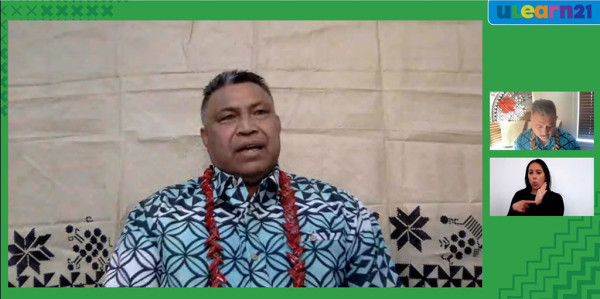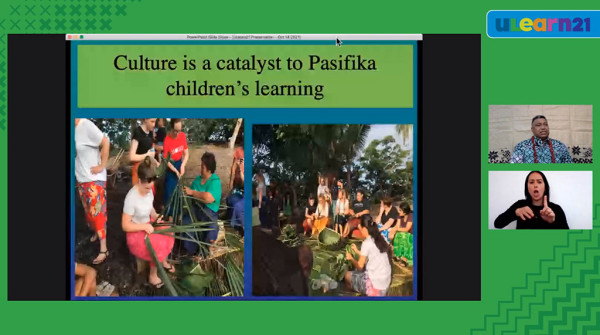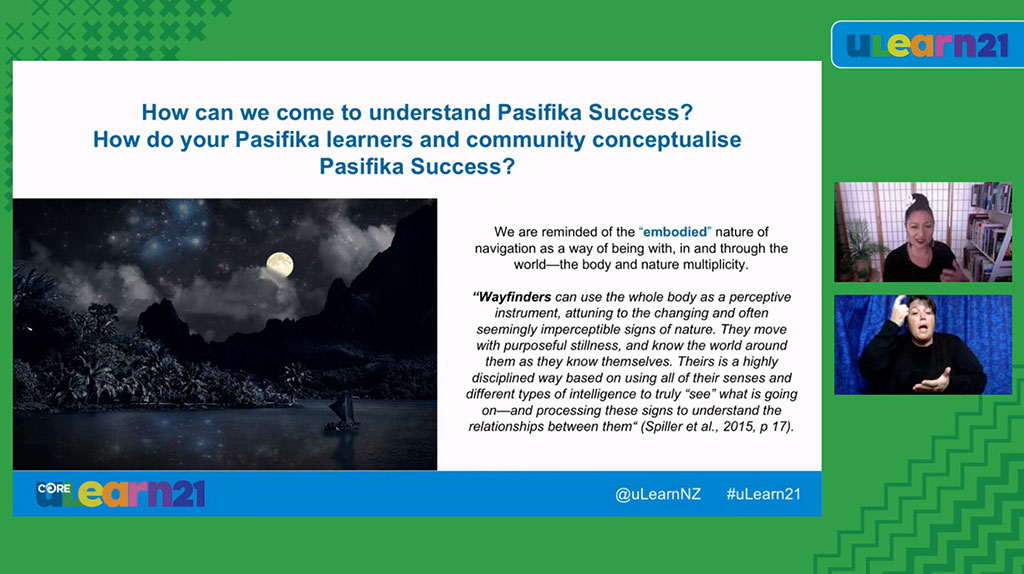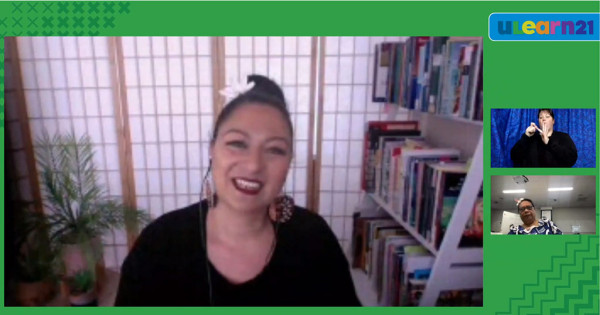uLearn21 reflections: Thriving individuals and communities
Identity, language and culture
This year’s uLearn allowed me to introduce one of our Pasifika academic activators Leali’ie’e Tufulasi Taleni, but more importantly it was a chance to immerse myself in the wealth of Pasifika knowledge shared throughout CORE’s two-day online conference. uLearn21 also gave me the opportunity to reflect on the journey of the Pasifika diaspora to Aotearoa and consider what thriving individuals actually means.
For Pasifika, thriving might simply look like being able to connect with their identity, language and culture. It could be about being proud of their cultural connections and roots here in Aotearoa that enable them to fill up their agaga (soul/spirit) and have access to the resources they need to nourish themselves and their aiga/kainga (family).

Tufulasi presents his activator session at uLearn21
Leali’ie’e Tufulasi Taleni described thriving as a notion that aligns with the concept of Pasifika people migrating to Aotearoa. He reminded us that Pasifika children in Aotearoa thrive when they are able to demonstrate their cultural values such as the values of service and love at school. Leali’ie’e used a Samoan proverb, “E felelei manu ae mapu i o latou ofaga”– birds migrate to environments where they can thrive and survive so when are children are nurtured in the classroom and supported by the whole extended family so they can succeed.

Tufulasi’s presentation
Another Pasifika academic speaker who shared the spotlight on Day 1 of uLearn was Jacoba Matapo, Associate Dean Pasifika and Senior Lecturer, Faculty of Education and Social Work University of Auckland. She presented on “Wayfinding Pasifika success in education and the Va that binds relationships.” Jacoba used navigation and wayfinding as an art form that generates connection. She told us that conceptual mappings of Pasifika success are framed by Pasifika students within the University of Auckland and are presented through imagery, poetry and story as examples of thriving in their education. She explored the Vā as a philosophy that brings ethical, spiritual and moral dimensions to the teaching and learning relationship for Pasifika learners and by using this philosophy will continue to allow them to thrive in and out of the classroom.

A slide from Jacoba’s presentation
Both Pasifika academics Tufulasi Taleni and Jacoba Matapo drew on common threads in their presentations that for the Pasifika diaspora to strive and succeed in Aotearoa there is a need for decolonisation of our formal education system. Specifically, how the current educational discourse is deeply rooted in individual success, and not collective success which is highly valued by Pasifika. They referenced systemic issues such as racism and exclusion access, the knowledge power base where there is a marginalisation of indigenous knowledge.

Jacoba presents her activator session at uLearn21
Both Taleni and Matapo agreed that to see more thriving and successful Pasifika learners in Aotearoa educational policies must be grounded in valuing Pasifika cultural capital, indigenous knowledge and Pacific epistemology which is steeped in their land, language, identity and aiga (family) as Matapo writes, “The notion of success is elusive and complex , it is grounded in the spirit of the collective (Matapo, 2019)”. Also this collective which Jacoba Matapo talked about aligns with CORE’s ongoing work around raising the equality flag especially for Māori and Pacific. As a collective organisation CORE will continue to advocate for the silent voice, the margalised, the minority and against this sharp end of equality in education.

Explore more content
Listen to our experts discussing the Pacific point of view on topics such as Matariki, Connecting through Talanoa, Aotearoa New Zealand histories, and Aotearoa's educational landscape.